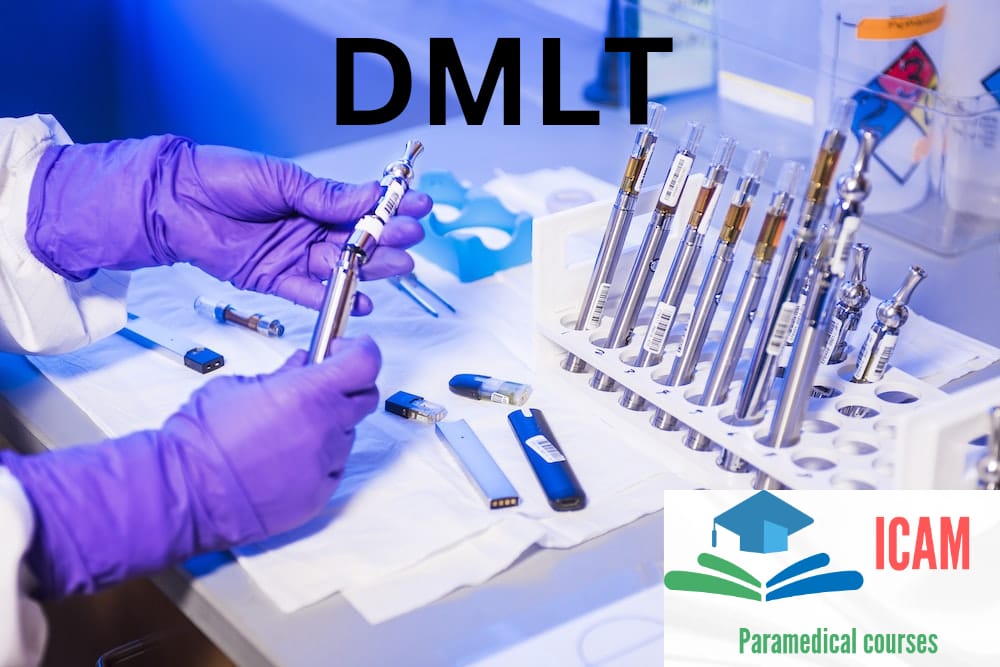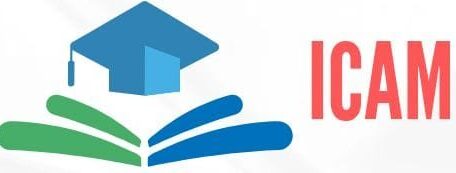Course Overview: The Diploma in Medical Laboratory Technology (DMLT) offered by the Indian Council of Alternative Medicine is designed to provide students with comprehensive knowledge and practical skills in medical laboratory technology. This course aims to train students to become competent laboratory technicians capable of performing diagnostic tests, analyzing samples, and assisting in medical research. The curriculum covers various aspects of laboratory procedures, equipment operation, sample collection and handling, as well as the understanding of common diseases and their diagnostic methods
.
Course Duration: The DMLT course has a total duration of two years, which includes theoretical instruction, practical training, and clinical internships.
Course Content:
Year 1:
- Introduction to Medical Laboratory Technology:
- Role and responsibilities of a medical laboratory technician
- Ethical considerations and professionalism in healthcare
- Anatomy and Physiology:
- Overview of human anatomy and organ systems
- Understanding physiological processes and their relevance to laboratory testing
- Fundamentals of Laboratory Sciences:
- Introduction to medical laboratory sciences and their applications
- Laboratory safety protocols and quality control measures
- Clinical Biochemistry:
- Principles and techniques of clinical biochemistry
- Analysis of blood and urine samples for biochemical parameters
- Hematology:
- Study of blood cells and their functions
- Hematological tests, including complete blood count and coagulation studies
- Microbiology:
- Microorganisms and their classification
- Techniques for the identification and cultivation of microorganisms
- Clinical Pathology:
- Study of diseases and their manifestations in laboratory tests
- Analysis of body fluids like cerebrospinal fluid, synovial fluid, etc.
Year 2:
- Immunology and Serology:
- The immune system and its role in disease detection
- Serological tests for various infections and autoimmune disorders
- Blood Banking and Transfusion Medicine:
- Understanding blood groups and compatibility
- Procedures for blood collection, processing, and transfusion
- Clinical Microscopy:
- Examination of urine and stool samples for abnormal constituents
- Cytological analysis of cells and tissues
- Histopathology and Cytology:
- Study of abnormal cells and tissues for diagnosis of diseases
- Techniques for tissue processing, staining, and microscopic examination
- Clinical Genetics and Molecular Biology:
- Introduction to genetic disorders and their laboratory diagnosis
- Molecular techniques, including PCR and DNA sequencing
- Medical Instrumentation and Laboratory Management:
- Operation and maintenance of laboratory equipment
- Quality assurance and management of laboratory services
- Clinical Internship:
- Hands-on training in a clinical laboratory setting
- Practical application of skills learned throughout the course
Note: The course content provided above is a general outline and may vary depending on the specific curriculum offered by the Indian Council of Alternative Medicine. It is advisable to refer to the official course materials and syllabus provided by the institution for the most accurate and up-to-date information
